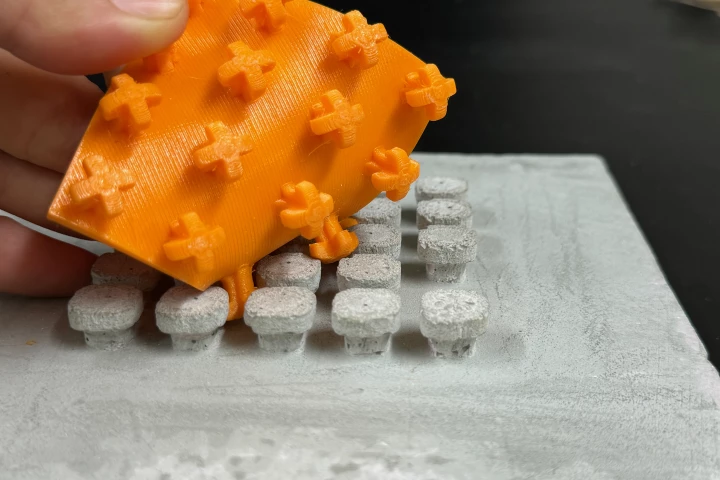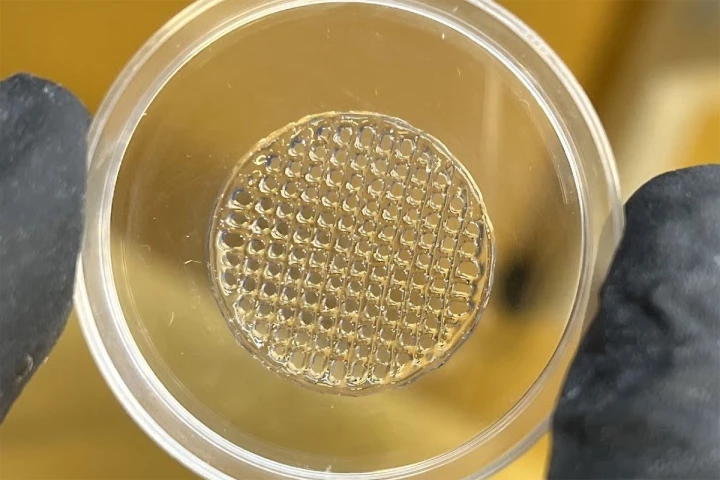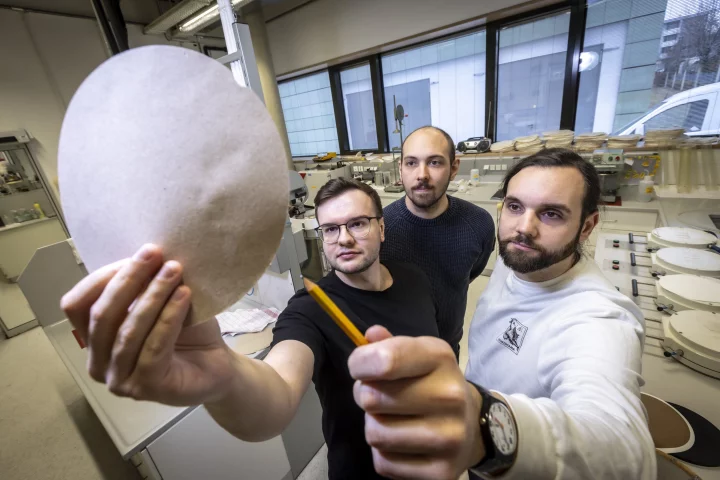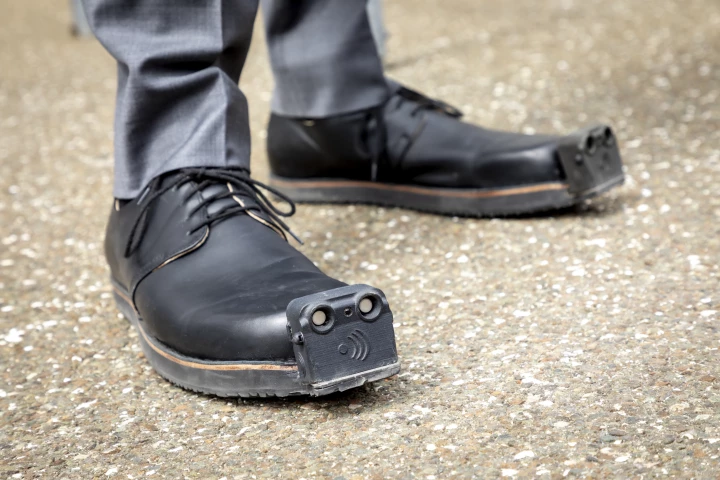TU Graz
-
Why tear down an entire building, if only its flimsy interior components need to be replaced? That's the thinking behind a new Velcro-like fastening system which allows interior walls to simply be yanked out and swapped for new ones when necessary.
-
Even in clear water, it can be easy for divers to lose track of which way they're heading. An experimental underwater navigation system could help keep that from happening, using a combination of electromagnetic waves and HUD (head-up display) tech.
-
A consortium of researchers from four European countries is developing a way to tattoo microbes on the exterior of buildings. These "living tattoos" will be able to suck carbon out of the air, protect the buildings, and even make them glow.
-
While we're making progress in phasing out animal testing in the cosmetics industry around the world, there's still a ways to go in developing reliable alternatives. 3D-printed 'imitation skin' could be the ticket.
-
While it's great that many types of paper can now be recycled, textile waste is still mostly dumped or burned. A new technique could change that by combining the two materials, using discarded cotton clothing to boost the strength of packaging paper.
-
Manufacturing could be dramatically changed thanks to two new techniques for joining materials created by scientists in Austria. The two methods create super strong bonds at the pore level, eliminating the need for caustic adhesives.
-
Scraping ice off your car window might get a lot easier in the future thanks to a new spray coating developed by scientists in Austria. That's because of the way the molecules line up – or don't – during its high-tech creation process.
-
By comparing the bacteria found in fruits and vegetables to those found in the human gut, researchers have demonstrated, for the first time, that consuming fruits and vegetables contributes positively to the bacterial diversity of our gut microbiome.
-
By taking ultrathin films and color pigments used routinely in the food industry, scientists have developed an implantable device that can be activated by light to stimulate nerve cells and accelerate healing.
-
It may seem like electronics will always get faster, but at some point the laws of physics intervene. Scientists have now calculated the absolute speed limit – the point at which quantum mechanics prevents microchips from getting any faster.
-
Manufactured by Austrian startup Tec-Innovation, the InnoMake shoe uses ultrasound sensors to warn blind users of obstacles in their path. The footwear may soon become even more capable, though, thanks to integrated cameras.
-
Scientists have developed what they claim is the smallest particle sensor in the world, designed specifically to detect harmful pollutants and offer a highly localized picture of air quality by being integrated into wearables and mobile devices.
Load More











